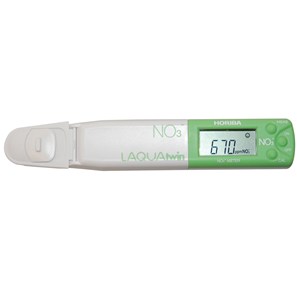Why the juice is worth the squeeze this watermelon season.
Watermelons are one of the most iconic and important crops in the Suwannee Valley are beginning to fill fields unaware of the uncertain times that the COVID-19 pandemic brings. In contrast, the farmers who grow these watermelons are well aware of the uncertainties the COVID-19 pandemic has brought to the fresh produce industry. All signs in the field point toward a productive season with harvest in less than a month for some fields. However, many producers are left wondering if they will even be able to sell their crop and if the price will be able to even cover their costs. This makes taking advantage of resources and technology that extension can bring to reduce costs will be critical to making it to next year.
Petiole sap testing is one of those technologies available to watermelon and other produce producers throughout the Suwannee Valley. Most UF IFAS county extension offices offer petiole sap testing for producers at no cost.
So, what is petiole sap testing?
Plants such as watermelons require the three essential macro nutrients for optimum grown and fruit production, nitrogen, phosphorus, and potassium. Watermelons are especially dependent on adequate levels of nitrogen and potassium. These nutrients are essential to produce enough vine to protect fruits from sun burn and to produce the volume of fruit commercial producers need to make watermelon farming economical.
Petiole sap testing is a real time assessment of nitrogen and potassium levels in watermelon plants. Its accomplished by collecting the first mature leaf from a watermelon vine runner. Usually the 5th or 6th leaf from the tip of the runner. Next, the sap, or juice, from the stem of the leaf is squeezed out. This sap is then placed into small pocket-sized meter that measures the amount of either nitrogen or potassium in the sap. This gives a real time estimate of the nutrient levels available to the plant. From here producers can provide appropriate nutrients if necessary.

How do we know how much of each nutrient a plant requires based on this test?
Years of research conducted at the UF IFAS Suwanee Valley Research and Education Center in Live Oak, FL by George Hochmuth have documented the required nutrients of a variety of produce plants including watermelons at different stages of growth. This research gives us ranges of nitrogen and potassium in watermelon plant tissues that are ideal for production at different stages of plant growth.
So, how does this help producers during the COVID-19 pandemic and why is the juice, or sap, worth the squeeze?
Normally, knowing the real-time nutrient levels would allow producers to make mid-season adjustments to their fertilizer plans to provide adequate nutrients for maximum production. These tests also help producers meet fertilizer Best Management Practices by not over fertilizing when the plant already has adequate nutrients. This year not over fertilizing becomes even more important because producers want to avoid using expensive fertilizers when the plant may not need it. This year avoiding even just one fertilizer application can save producers hundreds or even thousands of dollars. Savings like this might help their operation survive the COVID-19 pandemic to next year.
So, the answer is yes. For watermelon producers this year the juice will be worth it when the squeeze comes, if it comes.
Petiole sap testing is available through the county extension office. We normally recommend testing periodically to monitor fertilizer availability and usage. However, even just testing once can help you understand if your nutrient management program is working. Crops available to be tested include watermelons, squash, peppers, tomatoes, strawberries, eggplant, muskmelon, broccoli and collards.
Visit this EDIS publication for more information on sap testing or contact your county extension office.
 1
1
